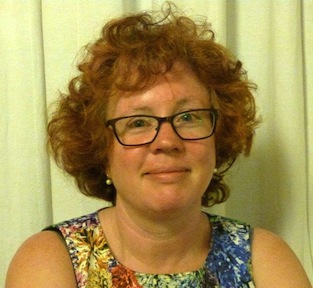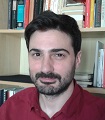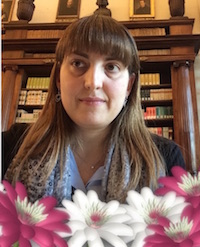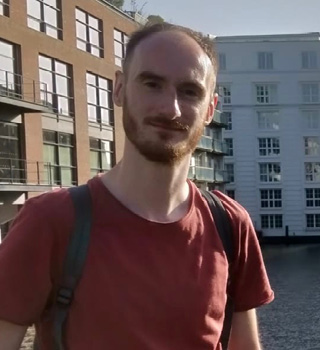Studiare
In questa sezione è possibile reperire le informazioni riguardanti l'organizzazione pratica del corso, lo svolgimento delle attività didattiche, le opportunità formative e i contatti utili durante tutto il percorso di studi, fino al conseguimento del titolo finale.
Calendario accademico
Il calendario accademico riporta le scadenze, gli adempimenti e i periodi rilevanti per la componente studentesca, personale docente e personale dell'Università. Sono inoltre indicate le festività e le chiusure ufficiali dell'Ateneo.
L’anno accademico inizia il 1° ottobre e termina il 30 settembre dell'anno successivo.
Calendario didattico
Il calendario didattico indica i periodi di svolgimento delle attività formative, di sessioni d'esami, di laurea e di chiusura per le festività.
| Periodo | Dal | Al |
|---|---|---|
| I semestre | 1-ott-2014 | 10-gen-2015 |
| II semestre | 23-feb-2015 | 30-mag-2015 |
| Sessione | Dal | Al |
|---|---|---|
| ESAMI LINGUE | 3-giu-2015 | 25-lug-2015 |
| Sessione | Dal | Al |
|---|---|---|
| TESI DI LAUREA - LINGUE | 30-mar-2015 | 1-apr-2015 |
| TESI DI LAUREA - LINGUE | 18-nov-2015 | 20-nov-2015 |
| Periodo | Dal | Al |
|---|---|---|
| Vacanze di Pasqua | 2-apr-2015 | 7-apr-2015 |
Calendario esami
Gli appelli d'esame sono gestiti dalla Unità Operativa Segreteria Corsi di Studio Lingue e letterature straniere.
Per consultazione e iscrizione agli appelli d'esame visita il sistema ESSE3.
Per problemi inerenti allo smarrimento della password di accesso ai servizi on-line si prega di rivolgersi al supporto informatico della Scuola o al servizio recupero credenziali
Per dubbi o domande leggi le risposte alle domande più frequenti F.A.Q. Iscrizione Esami
Docenti
 birgit.alber@univr.it
birgit.alber@univr.it
 paola.bellomi@univr.it
paola.bellomi@univr.it
 daniele.beltrame@univr.it
daniele.beltrame@univr.it
 riccardo.cella@univr.it
riccardo.cella@univr.it
Ceresa Marco

Chiecchi Giuseppe
 giuseppe.chiecchi@univr.it
giuseppe.chiecchi@univr.it
 +39 045802 8117
+39 045802 8117
 chiara.conterno@univr.it
chiara.conterno@univr.it
 cinzia.delotto@univr.it
cinzia.delotto@univr.it
Di Leo Donata
 veronica.gobbato@univr.it
veronica.gobbato@univr.it
 gianpaolo.lazzer@univr.it
gianpaolo.lazzer@univr.it
 zosimo.lopezpena@univr.it
zosimo.lopezpena@univr.it
 anna.morbiato@unive.it
anna.morbiato@unive.it
 chunye.niu@univr.it
chunye.niu@univr.it
 giulio.ongaro@univr.it
giulio.ongaro@univr.it
 sara.paolini@univr.it
sara.paolini@univr.it
Piano Didattico
Il piano didattico è l'elenco degli insegnamenti e delle altre attività formative che devono essere sostenute nel corso della propria carriera universitaria.
Selezionare il piano didattico in base all'anno accademico di iscrizione.
1° Anno
| Insegnamenti | Crediti | TAF | SSD |
|---|
Letteratura e cultura tedesca 1
Letteratura e cultura tedesca 1
Istituzioni di diritto commerciale
2° Anno Attivato nell'A.A. 2015/2016
| Insegnamenti | Crediti | TAF | SSD |
|---|
English literature and culture 2
English literature and culture 2
Deutsche Literatur und Kultur 2
Deutsche Literatur und Kultur 2
Literatura y cultura española 2
Literatura y cultura española 2
Geografia delle comunicazioni e del commercio internazionale
3° Anno Attivato nell'A.A. 2016/2017
| Insegnamenti | Crediti | TAF | SSD |
|---|
Principi di marketing internazionale
| Insegnamenti | Crediti | TAF | SSD |
|---|
Letteratura e cultura tedesca 1
Letteratura e cultura tedesca 1
Istituzioni di diritto commerciale
| Insegnamenti | Crediti | TAF | SSD |
|---|
English literature and culture 2
English literature and culture 2
Deutsche Literatur und Kultur 2
Deutsche Literatur und Kultur 2
Literatura y cultura española 2
Literatura y cultura española 2
Geografia delle comunicazioni e del commercio internazionale
| Insegnamenti | Crediti | TAF | SSD |
|---|
Principi di marketing internazionale
| Insegnamenti | Crediti | TAF | SSD |
|---|
Legenda | Tipo Attività Formativa (TAF)
TAF (Tipologia Attività Formativa) Tutti gli insegnamenti e le attività sono classificate in diversi tipi di attività formativa, indicati da una lettera.
Diritto pubblico comparato ed europeo (2016/2017)
Codice insegnamento
4S002938
Docenti
Coordinatore
Crediti
9
Lingua di erogazione
Italiano
Settore Scientifico Disciplinare (SSD)
IUS/21 - DIRITTO PUBBLICO COMPARATO
Periodo
I SEMESTRE dal 3-ott-2016 al 21-gen-2017.
Obiettivi formativi
Il corso introduce allo studio del diritto pubblico comparato e del diritto europeo, dei sistemi giuridici e della regolamentazione pubblica delle attività economiche, mediante il ricorso alla comparazione giuridica.
Programma
Il corso fornisce allo studente gli strumenti necessari per la comprensione del fenomeno giuridico, concentrandosi con particolare sugli istituti più rilevanti del diritto pubblico e costituzionale degli ordinamenti statali e dell'Unione europea. Esso si concentra poi su quella branca del diritto amministrativo comparato che prende il nome di diritto dell’economia.
La prima parte del corso è dedicata all’introduzione al fenomeno giuridico, alle nozioni fondamentali del diritto pubblico (costituzionale, amministrativo e dell'economia), al metodo nella comparazione giuridica, alle fonti del diritto. Oggetto d'indagine saranno anche sistemi giuridici del mondo: common law, civil law, la famiglia giuridica socialista, i sistemi post-socialisti, il diritto islamico, indù, dell’estremo Oriente, dell’Africa subsahariana. Particolare attenzione è riservata al diritto dell'Africa australe.
La seconda parte del corso si concentra sulle costituzioni, sulle forme di stato e di governo, sul federalismo), sul processo di integrazione europea.
La terza parte esamina i rapporti tra stato ed economia. Particolare attenzione sarà dedicata al diritto dell’Unione europea – che oramai regola, per la gran parte, le attività regolative dei soggetti pubblici nell’economia – e la c.d. finanza pubblica (poteri distributivi dei poteri pubblici, spesa pubblica, pareggio di bilancio, relazioni intergovernative finanziarie) e le recenti riforme che, a livello sovranazionale, impongono la riduzione dei disavanzi eccessivi.
Bibliografia
Per gli studenti frequentanti
a) appunti delle lezioni e materiali messi a disposizione dai docenti;
b) M. Nicolini, L'altra common law of the land. La famiglia giuridica 'mista' dell'Africa australe, BUP, Bologna, 2016;
c) S. Bagni, M. Nicolini, G. Pavani, F. Rosa (cur.), Materiali essenziali per un corso di diritto pubblico comparato, Filodiritto, Bologna, 2016.
Studenti non frequentanti/Students that will not attend the lectures must study:
1) In alternativa:
1a) G. Morbidelli, L. Pegoraro, A. Rinella, M. Volpi, Diritto pubblico comparato, Torino, 2016 (solo i capp. I, II, III, IV, VI sez. I, VII, IX);
1b) G. Pegoraro, A. Rinella, Sistemi costituzionali comparati, Giappichelli, Torino, 2017 (solo i capp. I, II, III, IV, V, VII, VIII, X).
2a) M. Nicolini, L'altra common law of the land. La famiglia giuridica mista dell'Africa australe, BUP, Bologna, 2016.
oppure
2b)S. Cassese, La nuova costituzione economica, Laterza, Roma-Bari, ult. ed. (capp. I, II, III, V, VII, VIII, IX)
è consigliata la lettura del seguente libro di testo:
S. Bagni, M. Nicolini, G. Pavani, F. Rosa (cur.), Materiali essenziali per un corso di diritto pubblico comparato, Filodiritto, Bologna, 2016.
Modalità d'esame
l'accertamento avverrà con colloquio orale
Materiale e documenti
-
 Africa australe
(octet-stream, it, 152 KB, 13/12/16)
Africa australe
(octet-stream, it, 152 KB, 13/12/16)
-
 Andreoli 1
(octet-stream, it, 118 KB, 16/11/16)
Andreoli 1
(octet-stream, it, 118 KB, 16/11/16)
-
 Andreoli 2
(octet-stream, it, 98 KB, 18/11/16)
Andreoli 2
(octet-stream, it, 98 KB, 18/11/16)
-
 Andreoli 3
(octet-stream, it, 727 KB, 05/12/16)
Andreoli 3
(octet-stream, it, 727 KB, 05/12/16)
-
 Andreoli 4
(octet-stream, it, 86 KB, 05/12/16)
Andreoli 4
(octet-stream, it, 86 KB, 05/12/16)
-
 Andreoli 5
(octet-stream, it, 98 KB, 12/12/16)
Andreoli 5
(octet-stream, it, 98 KB, 12/12/16)
-
 Civil law e common law
(pdf, it, 203 KB, 04/10/16)
Civil law e common law
(pdf, it, 203 KB, 04/10/16)
-
 Costituzione trattati europei
(pdf, it, 360 KB, 21/11/16)
Costituzione trattati europei
(pdf, it, 360 KB, 21/11/16)
-
 Costituzioni
(octet-stream, it, 144 KB, 24/10/16)
Costituzioni
(octet-stream, it, 144 KB, 24/10/16)
-
 Diritto islamico, indù e africano
(pdf, it, 202 KB, 17/10/16)
Diritto islamico, indù e africano
(pdf, it, 202 KB, 17/10/16)
-
 Estremo Oriente
(octet-stream, it, 692 KB, 18/10/16)
Estremo Oriente
(octet-stream, it, 692 KB, 18/10/16)
-
 Europa e diritti
(octet-stream, it, 545 KB, 16/11/16)
Europa e diritti
(octet-stream, it, 545 KB, 16/11/16)
-
 Europa e diritti fondamentali
(pdf, it, 11700 KB, 21/11/16)
Europa e diritti fondamentali
(pdf, it, 11700 KB, 21/11/16)
-
 Famiglie giuridiche
(pdf, it, 90 KB, 04/10/16)
Famiglie giuridiche
(pdf, it, 90 KB, 04/10/16)
-
 Fonti europee
(pdf, it, 345 KB, 10/11/16)
Fonti europee
(pdf, it, 345 KB, 10/11/16)
-
 fonti politiche
(octet-stream, it, 97 KB, 22/10/16)
fonti politiche
(octet-stream, it, 97 KB, 22/10/16)
-
 Forme di governo
(pdf, it, 92 KB, 03/11/16)
Forme di governo
(pdf, it, 92 KB, 03/11/16)
-
 Giustizia costituzionale
(pdf, it, 557 KB, 05/12/16)
Giustizia costituzionale
(pdf, it, 557 KB, 05/12/16)
-
 Introduzione al corso
(pdf, it, 137 KB, 04/10/16)
Introduzione al corso
(pdf, it, 137 KB, 04/10/16)
-
 La cittadinanza europea
(pdf, it, 134 KB, 09/11/16)
La cittadinanza europea
(pdf, it, 134 KB, 09/11/16)
-
 L'Unione europea
(pdf, it, 467 KB, 09/11/16)
L'Unione europea
(pdf, it, 467 KB, 09/11/16)
-
 Meccanismi di assistenza
(pdf, it, 223 KB, 21/11/16)
Meccanismi di assistenza
(pdf, it, 223 KB, 21/11/16)
-
 Metodo e fonti
(pdf, it, 221 KB, 04/10/16)
Metodo e fonti
(pdf, it, 221 KB, 04/10/16)
-
 Non discrimnazione
(pdf, it, 249 KB, 05/12/16)
Non discrimnazione
(pdf, it, 249 KB, 05/12/16)
-
 Portogallo austerità
(pdf, it, 235 KB, 21/11/16)
Portogallo austerità
(pdf, it, 235 KB, 21/11/16)
-
 Precedente
(pdf, it, 103 KB, 04/10/16)
Precedente
(pdf, it, 103 KB, 04/10/16)
-
 Sistemi misti e nordici
(pdf, it, 121 KB, 12/10/16)
Sistemi misti e nordici
(pdf, it, 121 KB, 12/10/16)
Tipologia di Attività formativa D e F
Per scoprire tutte le attività didattiche accreditate dal Collegio didattico clicca qui
Prospettive
Avvisi degli insegnamenti e del corso di studio
Per la comunità studentesca
Se sei già iscritta/o a un corso di studio, puoi consultare tutti gli avvisi relativi al tuo corso di studi nella tua area riservata MyUnivr.
In questo portale potrai visualizzare informazioni, risorse e servizi utili che riguardano la tua carriera universitaria (libretto online, gestione della carriera Esse3, corsi e-learning, email istituzionale, modulistica di segreteria, procedure amministrative, ecc.).
Entra in MyUnivr con le tue credenziali GIA: solo così potrai ricevere notifica di tutti gli avvisi dei tuoi docenti e della tua segreteria via mail e a breve anche tramite l'app Univr.
Area riservata studenti
Gestione carriere
Assegnazione tutore
Attività accreditate D/F
Calendario didattico dettagliato
Cambio lingua curriculare
Competenze informatiche
Competenze linguistiche (prima e seconda lingua)
Competenze linguistiche in triennale (terza lingua CFU F)
Compilazione del piano didattico
Corso di Lingua portoghese
Erasmus+ e altre esperienze all'estero
Esercitazioni Linguistiche CLA
Presentazione dei corsi di studio e Open day
Prova finale
La prova finale, a cui vengono attribuiti 6 CFU consiste nella preparazione e discussione di un elaborato scritto su materia di uno degli insegnamenti in cui siano stati acquisiti almeno 6 CFU.
La discussione dell'elaborato scritto avviene in presenza di una Commissione Istruttoria composta da due docenti dell'Ateneo che si riunisce nei giorni precedenti la proclamazione e che propone alla Commissione di Laurea (composta da almeno tre docenti) una valutazione. Alla prova finale potranno essere attribuiti non più di 5 punti su 110. L'attribuzione della lode avviene o su proposta del relatore, se l'elaborato è ottimo e la media dei voti conseguiti negli esami dallo Studente raggiunge almeno 110 punti, o in maniera automatica se la media raggiunge almeno 113 punti.
Il voto di laurea è formato da:
a) la media aritmetica dei voti conseguiti negli esami, rapportata a 110,
b) la valutazione dell'elaborato finale,
c) punti supplementari di incentivazione:
- un massimo di 2 punti per le lodi (1 punto per due lodi, 2 punti per più lodi).
- 2 punti per la partecipazione al Programma Erasmus o assimilato, a condizione che lo studente: abbia acquisito almeno 12 CFU per un semestre di mobilità nel corso del ciclo di studi (24 CFU per due semestri di mobilità) e consegua il titolo finale entro la durata normale del corso di studi.
- 1 punto per la partecipazione al Programma Erasmus o assimilato, a condizione che lo studente: abbia acquisito almeno 12 CFU per un semestre di mobilità nel corso del ciclo di studi (24 CFU per due semestri di mobilità) e consegua il titolo finale anche oltre la durata normale del corso di studi.
- Lo studente vincitore del bando del Ministero dell’Università per assistente di lingua italiana all’estero o di borsa Comenius presso scuole di 1° e 2° grado dell’Unione Europea otterrà un punteggio supplementare, che sarà aggiunto alla media finale del voto di laurea: 1 punto, per una esperienza di assistentato fino a 6 mesi; 2 punti, per una esperienza di assistentato superiore a 6 mesi.
Non possono essere attribuiti punti di incentivazione per qualsiasi esperienza all’estero svolta dallo studente su iniziativa privata, anche se riconosciuta come equipollente dal Dipartimento/Collegio Didattico.
- 2 punti per la conclusione degli studi in corso (solo per gli studenti di prima immatricolazione, senza il riconoscimento della carriera pregressa o sospensione di carriera).
Adempimenti amministrativi, scadenze domanda di laurea, calendari delle discussioni elaborato finale e proclamazioni di laurea al seguente link Sessioni di laurea
Elenco delle proposte di tesi e stage
| Stage | Area di ricerca |
|---|---|
| PROGETTO MAMBRINO Stage per bibliografia | Argomenti vari |
Saperi minimi
Stage e tirocini
Nel piano didattico della laurea triennale in Lingue per il turismo e il commercio internazionale (L12) è previsto un periodo di stage obbligatorio (CFU 6) in organizzazioni imprenditoriali.
Le attività di stage sono finalizzate a far acquisire allo studente una conoscenza diretta in settori di particolare interesse per l’inserimento nel mondo del lavoro e per l’acquisizione di abilità professionali specifiche.
Le attività di stage sono svolte sotto la diretta responsabilità di un singolo docente presso studi professionali, enti della pubblica amministrazione, aziende accreditate dall’Ateneo veronese.
I crediti maturati in seguito ad attività di stage saranno attribuiti secondo quanto disposto nel dettaglio dal “Regolamento d’Ateneo per il riconoscimento dei crediti maturati negli stage universitari” vigente.
- Tutte le informazioni in merito agli stage per futuri studenti sono disponibili alla pagina Stage e tirocini.
- Tutte le informazioni in merito agli stage per studenti iscritti sono pubblicate in MyUnivr - come fare per - stage e tirocini.
- Tutte le informazioni in merito agli stage per le aziende sono disponili alla pagina Stage e tirocini per azienze.
Ulteriori informazioni al seguente link https://www.univr.it/it/i-nostri-servizi/gestione-carriere-studenti-lingue-e-letterature-straniere/stage-e-tirocini-lingue-e-letterature-straniere























































